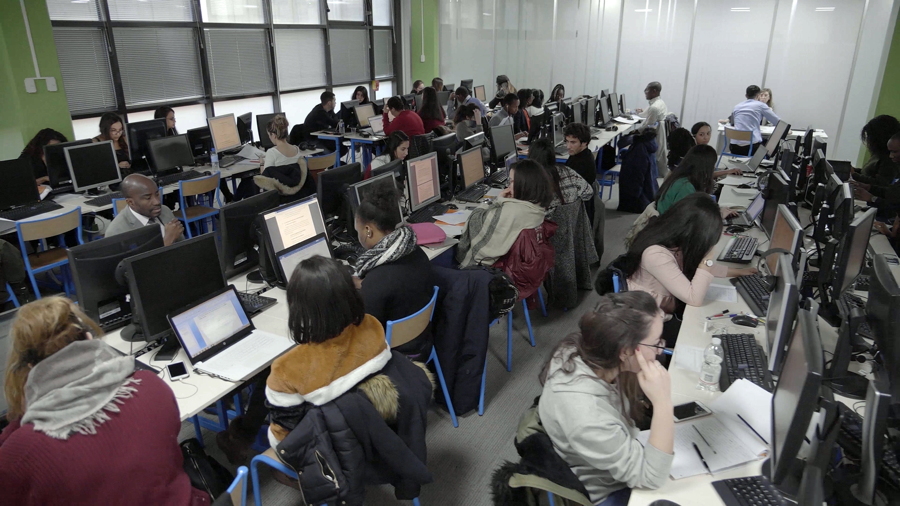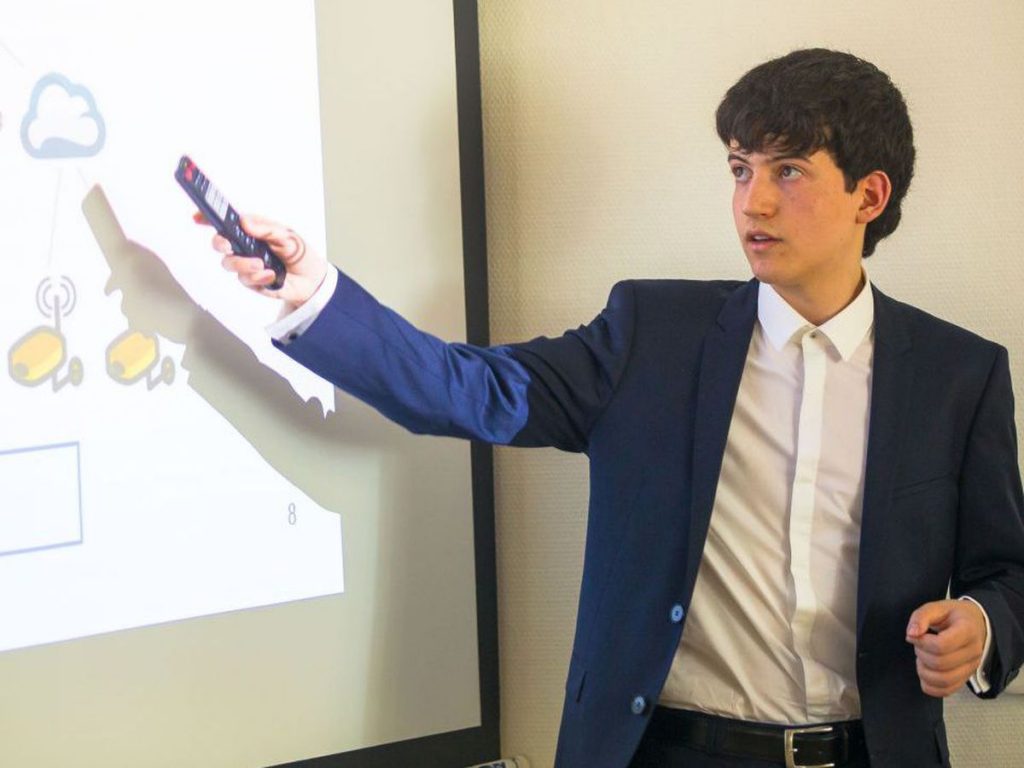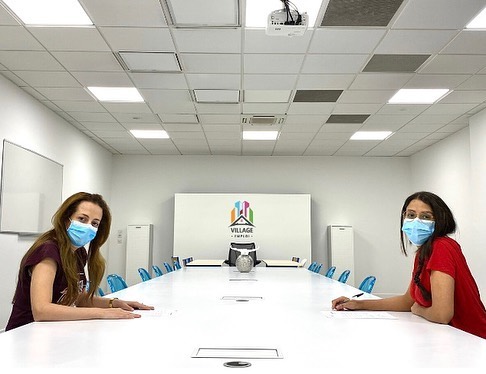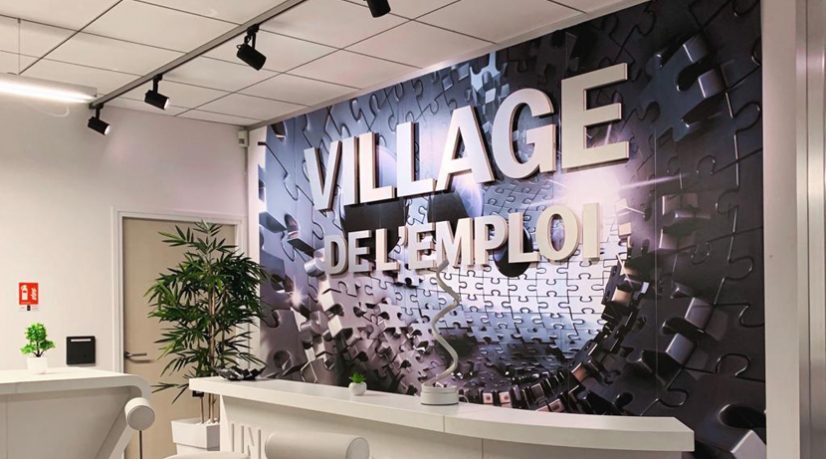VILLAGE DE L'EMPLOI
Unemployment is a scourge that has raged for many years in our country, with the powerlessness of the public authorities to curb it despite numerous plans announced. fault may be in the correct diagnosis of the situation which would allow a better fight against this national problem. Other countries around us, like Germany are doing better and this is certainly a lesson that France should learn. The fundamental problem is not so much the lack of available job vacancies as the mismatch between the skills available and the needs of the company. It is therefore on the side of initial training that we must turn. We have a very anchored system in France of a university and traditional nature which has not taken the turn of the 1970s. Lectures, diplomas with very generic skills, initial training is very far from the business world that offers jobs. today and tomorrow. The observation has become glaring in the field of new technologies which have been booming since the 2000s. Companies are struggling to find the collaborators they need, trained in the right computer languages, capable of carrying out projects, of functional manager in matrix organizations. This questioning of initial training is an important issue weighing on unemployment statistics.
The Job Village: how does it work?
The employment village has made this observation and has set up a concrete mechanism to bring together young graduates and digital and digital companies: the formula is simple, it is a question of offering refresher training for young graduates or even young people without a diploma, and after only a few months to put them in a full professional situation in a company. Impossible ? It is perhaps with a somewhat numbing peremptory thought that our country remains stuck in its difficulties. The founders of the training employment village did so with a daring, pragmatic and progressive approach. Bring together partner companies, which need IT and digital skills, and involve them in the design of training modules so that they constantly meet the needs they have in the field. Abandon any masterful approach, approach the themes with pragmatism, aiming at implementation, give confidence to future laureates by giving them responsibilities very quickly. They will base their future success on their experience, their failures and their successes in the field.
Many young graduates wake up on the morning of their graduation to realize that the diploma they have in their pocket does not allow them to sell themselves on the job market. Perhaps they have studied a field that interests them – and this is not always the case – but it is still necessary to know what they will be able to do in their professional life on the basis of this training. It is often a time of great disillusionment for them. It is at this stage that the employment village intends to intervene. Many young people have an appetite for the world of digital and digital even if they have not planned for a career in this sector. Perhaps simply for lack of information. It’s a very varied universe, with many different jobs, new ones are being invented every day, and we still don’t know what functions we will need in 15 years! Creativity, interactivity, autonomy are aspirations of many young people, so why not develop them in the world of new technologies?
The winning formula of the employment village
Since 1998, the Village de l’Emploi Formation has created a bridge between these young graduates who are thirsty to enter the job market and companies who need skills in the digital and IT fields. After an upgrading phase organized around practical and synthetic modules, for a maximum of 3 to 9 months, the future laureates are sent for a period of 3 years to the partner company to occupy a full position. they will be given responsibilities very quickly, they will take charge of projects, missions resting on their shoulders, they will have to interact in the organization. Far from the position of a work-study trainee who will chomp on the brakes for 18 months with subordinate missions, the future winner is really put in a situation. The rise in competence is very fast and spectacular and at the end of the 3 years of contract, the young graduate is driven out on the market. this is what we see in the statistics of former students. During the duration of his contract with the partner company, the young graduate has all the resources and support of the village, its networks, the help of its tutors and teachers as well as the support of the entire community of the village. town. There is therefore a real follow-up and a real support to help him achieve his objectives.

The right profiles for digital professions are snapping up on the market
The functioning of traditional companies is very frustrating for young graduates: they are keen to follow the same paths for their recruits, an obsolete and formatted career plan, which of course does not suit all profiles, and which does not take into account aspirations of generations Y and Z. They want to develop in a more free and personalized way, with ad-hoc training allowing them to move forward in the direction they wish to give to their career. Conformism is their enemy pie. The Specialties Employment Village has fully understood this new aspiration and has based its entire system on an individualization of career paths, based on the experience lived with the partner company. No two routes are alike. Beyond the 3-year period in a company, young people have acquired a highly sought-after background, made up of very operational training in modules, and a long professional experience that they can use to reach a new step in their career. with new employers. The specialties employment village acts as a real career accelerator.


What jobs are preparing for the employment village?
Constantly in contact with the needs of partner companies, changes in technology and the appearance of new needs, the Village is developing its offer of modules. This is the essential condition for the formula to work, because IT professions are subject to obsolescence. We cannot afford to rest on our laurels. The possibilities are therefore extremely diverse, but we can identify four typical courses:
The first profile is that of project management assistance and project management. this is addressed to all, to minds with a strong spirit of synthesis and analysis, but not necessarily to people who already have a background in computer science, because it is a question of working on the functional. We must understand and lead projects by appropriating the specificities of the trades in which we intervene. Reformulation of needs, process design, tests on the functional application.
The second possible profile is that of business intelligence: this is business intelligence and statistics. The winner will have to create and develop decision support tools to facilitate customer analyzes and reports. Ease in the customer relationship is fundamental to be able to best address customer needs. Collect requests, model them, transcribe the data in order to optimally restore the options to lead to the best decision-making support tools.
Third possible course, that of new technologies and development. This is the ideal direction for laureates who already have computer training, a previous course in computer languages. they must also have an appetite for this type of profession. They are intended for careers as developers and development team managers.
The fourth possible profile is data management, which is becoming increasingly important with the rise of social networks and big data. Highly sought after, these skills cover operation and production, particularly in systems, networks and telecoms.

Q: I have a bac + 4 and want to retrain in the field of information systems. Is it possible for me to register for the Village de l’Emploi program?
A: At the Village de l’Emploi, we accept many candidates each year, …
Village de l'emploi avis
Village de l'emploi avis village de l'emploi
Village de l'emploi avis Le Figaro
Village de l'emploi avis Forum
Village de l'emploi avis La tribune
Village de l'emploi avis Nice matin
village de l'emploi avis Emplois web
Avis village de l'emploi
Village de l'emploi avis décrochez un JOB
Village de l'emploi avis le monde informatique
Avis village de l'emploi Multipass
Divergences sur les avis du village de l'emploi
Village de l'emploi avis Le Parisien
Les différents avis autour du Village de l’emploi
Avis : Le village de l’emploi